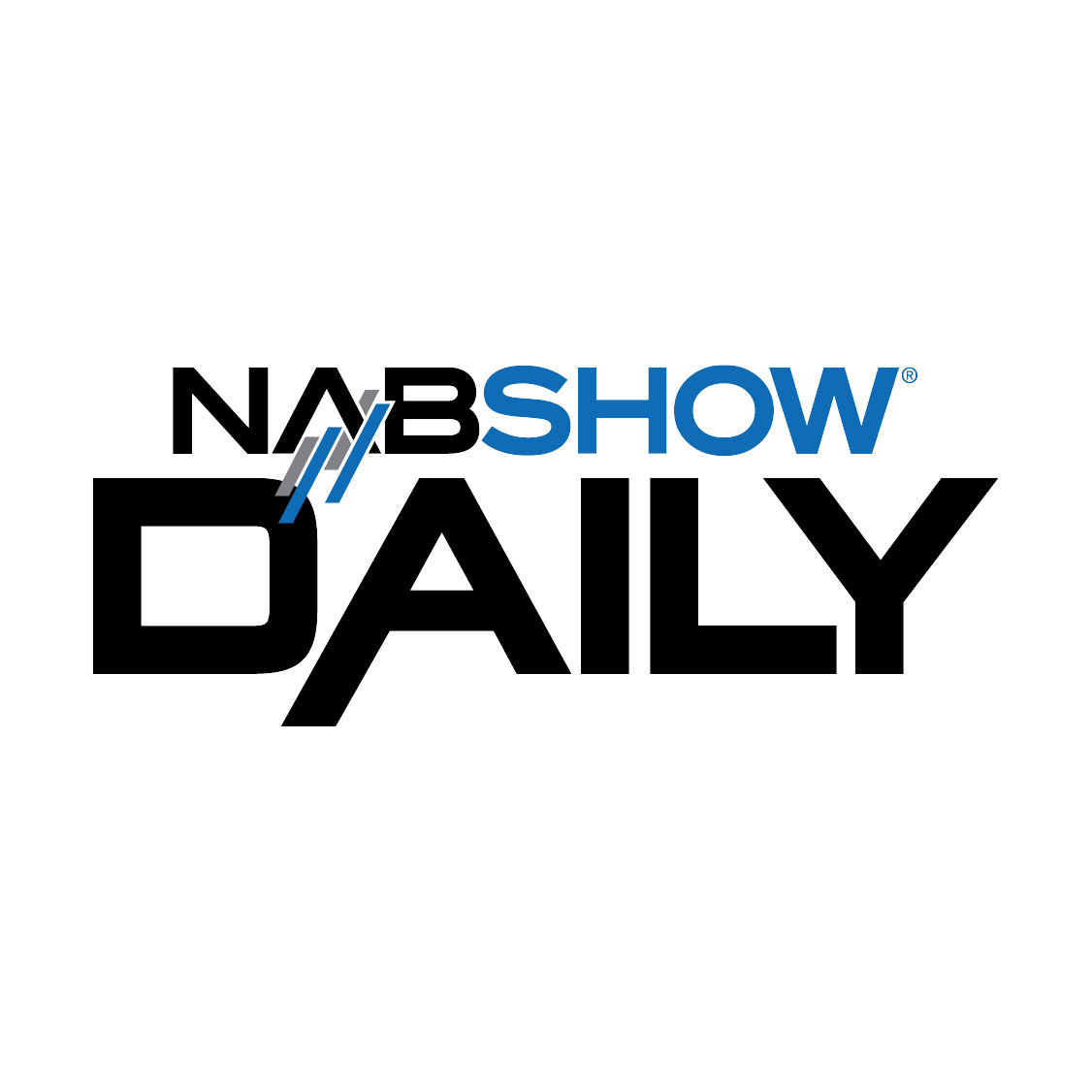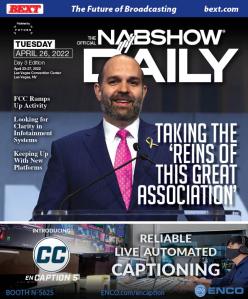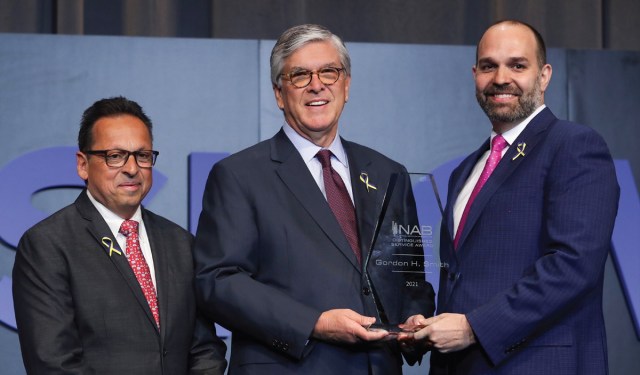
By Michael Malone, Next TV
NAB president and CEO Curtis LeGeyt outlines the four key points he seeks to make with lawmakers at his 2022 NAB Show State of the Industry address.
“Welcome to the 2022 NAB Show!” began Curtis LeGeyt, National Association of Broadcasters president and CEO, in his State of the Industry address. “Six words that I’ve waited three years to say!”
The 2022 NAB Show is LeGeyt’s first in his new role. He was chief operating officer of NAB before moving up to president and CEO at the start of the year, with Gordon Smith retiring.
“There is truly no greater honor than representing your interests in the halls of government every day,” he said, “and I cannot imagine a more exciting or more important time to take the reins of this great association.”
LeGeyt spoke of the role local broadcasters have played amidst the pandemic, civil unrest and attacks on democracy. “Through everything, you were — and are — a leading voice in helping communities sort through a multitude of information and emotions,” LeGeyt said, “while also striving to find common ground and common good.”
He mentioned broadcasters’ ability to bind the communities they work in, while other media often divides them. He noted “next generation” technologies that make broadcast television even more powerful, including ATSC 3.0, 5G, streaming and mobile video, and new developments that are leading an evolution in radio.
“The data capabilities of HD Radio and the connected car give broadcasters powerful new ways to build and extend their listener relationships,” he said.
LeGeyt described the four areas he’s working on with policymakers. “First, Congress must take action to rein in the gatekeeping ability of the Big Tech giants who are stifling the economics of local news,” he said, noting how local broadcasters lose some $2 billion annually when their content is accessed through Google and Facebook.
Next, LeGeyt said, lawmakers “must modernize media-ownership laws to reflect the realities of the marketplace.” Google and Facebook control around 77 percent of locally focused digital advertising, he added.
Third, NAB urges the FCC “to reorient how it thinks about broadcast policy more broadly,” LeGeyt said. He added that broadcast’s ability to function in the public interest is premised on “its economic viability.”
His final point for policymakers is urging congressional support for the Local Radio Freedom Act, which opposes a new performance fee on local radio stations.
“Broadcasting is more than a technology. It is a public service — interwoven in the fabric of our communities,” said LeGeyt, sharing a story about Doug Kammerer, meteorologist at NBC’s WRC Washington, who was live on the air when he saw a tornado on the radar, and called his children to warn them while still broadcasting.
“Doug is one of thousands of local broadcasters providing these kinds of lifelines in their communities every day,” LeGeyt said.
He concluded, “My hope as your president and CEO is for us to continue our work together to always be there for our communities and give Americans the trusted local journalism only broadcasters can provide.”
Rob Hubbard of Hubbard Broadcasting said LeGeyt delivered a strong presentation. “Curtis has been doing a great job and will continue to do great,” he said.
Asked what about the address stood out for him, Hubbard said, “the focus on what we do to help our communities.”
Walter Podrazik, a lecturer at the University of Illinois-Chicago, said he is eager to pass along parts of LeGeyt’s State of the Industry speech to his students. “I want to share this with the new generation of news consumers,” he said.
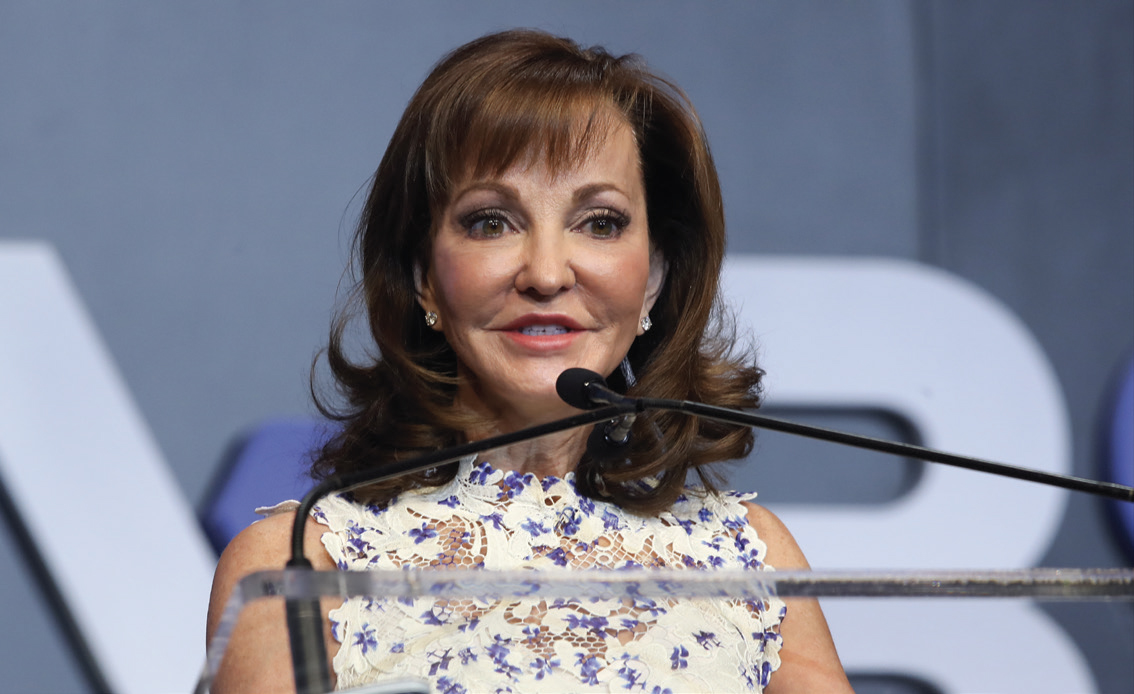
Following LeGeyt’s remarks, Caroline Beasley, CEO of Beasley Media Group, was given the National Radio Award, which honors outstanding leadership in radio. “My service to the radio industry has always come from a true love for the business,” Beasley said. “I grew up in it.”
Beasley said radio broadcasters have a more robust opportunity to deliver compelling content than ever before. “I don’t know about you, but I’m very excited about what the future holds,” she said.
LeVar Burton, whose on-screen credits include “Roots,” “Star Trek: The Next Generation” and “Reading Rainbow, received the inaugural Insight Award from the Library of American Broadcasting Foundation. “The stories that we tell set the foundation” of who we are and what is important to us, he said. His family is full of teachers, Burton said, and he took “my branch of the family business into the broadcast medium.”
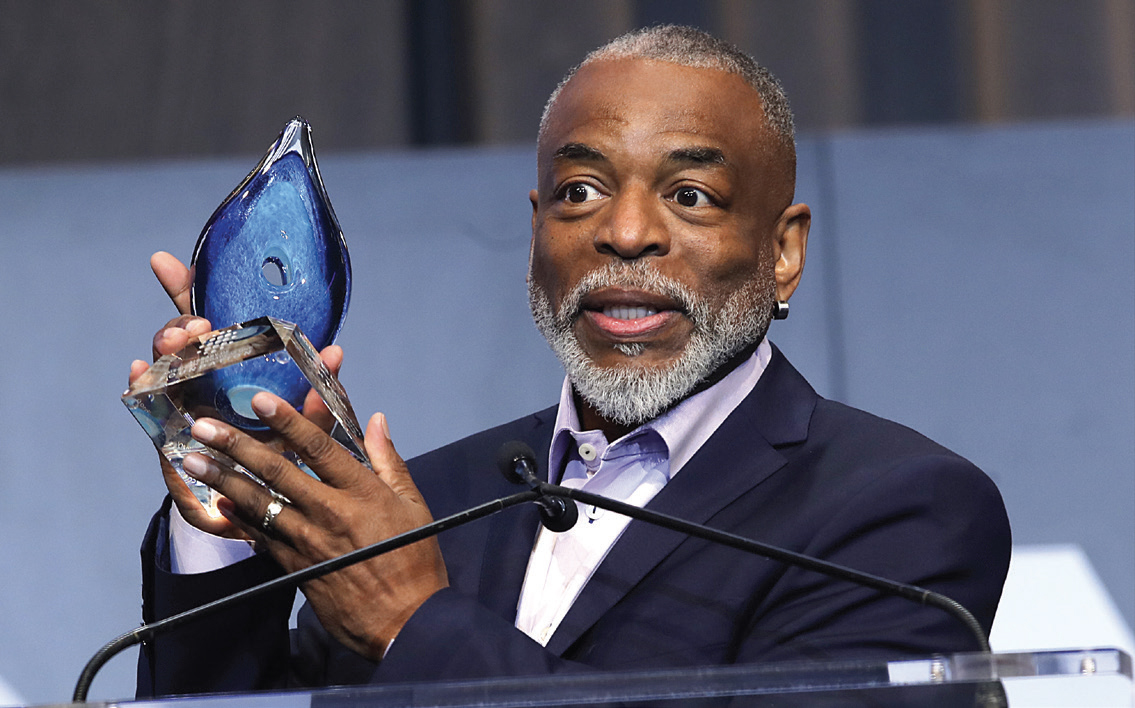
Burton singled out Alex Haley, Gene Roddenberry and Fred Rogers for bringing “a unique and powerful voice” to America and beyond.
Finally, Gordon Smith, former NAB president and CEO, received the NAB Distinguished Service Award. Following recorded statements from President Joe Biden and former President Bill Clinton, among others, an emotional Smith said he is accepting the award not for the recognition of what he has accomplished, but “as a reminder that there is still much yet to do.” He referred to himself as a “foot soldier” in the broadcast battle.
A former U.S. senator from Oregon, Smith took over as NAB chief in late 2009, and retired at the close of 2021.
Smith thanked the room for giving him advice, offering him counsel, and at times giving him criticism. “You’ve given me support and you’ve given me friendship,” Smith concluded.

